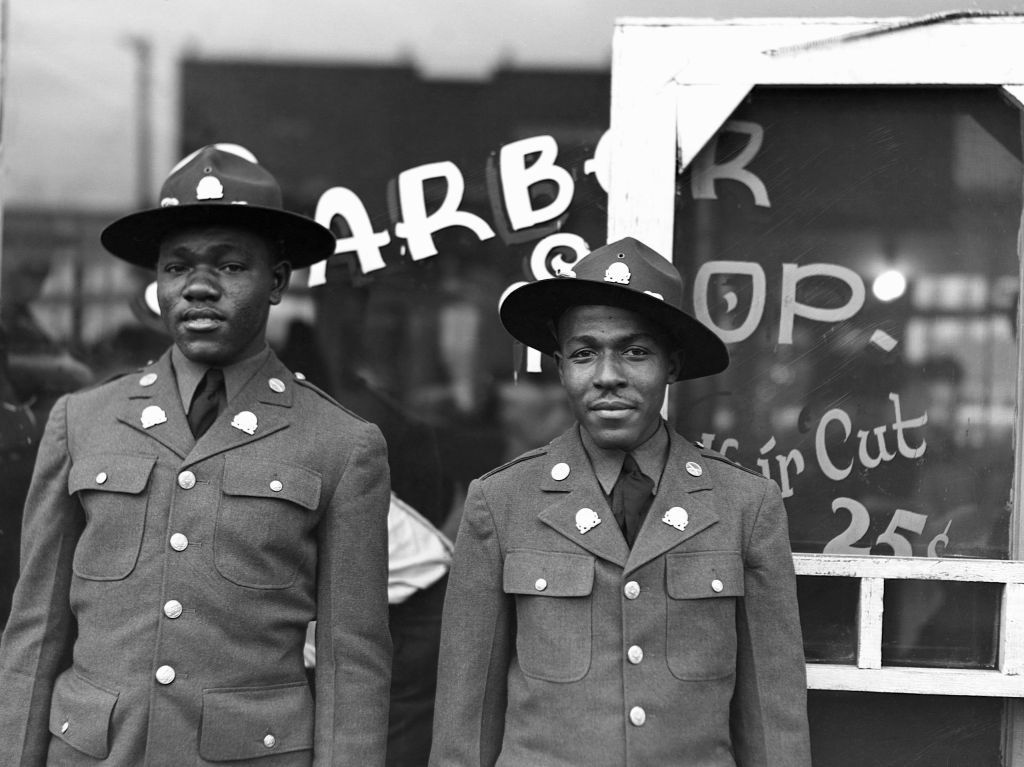Port Of Chicago Black Soldiers Posthumously Exonerated From 1944 Mutiny Conviction

Explosion at Port Chicago while loading ammunition onto ships, July 17, 1944 Source: San Francisco Chronicle/Hearst Newspapers via Getty Images / Getty
A group of Black Navy sailors, famously known as the Port Chicago 50, were posthumously exonerated on July 17 for their 1944 mutiny conviction. They had refused to return to work after two explosions destroyed liberty ships stationed at the Port of Chicago near San Francisco, the largest ammunition shipping facility on the West Coast during World War II.
Secretary of the Navy, Carlos Del Toro, stated that the sailors’ court-martial made “significant legal errors” that rendered the court decision “fundamentally unfair,” according to CBS News.
“Yet, for 80 years, the unjust decisions endured. Now, I am righting a tremendous wrong that has haunted so many for so long.”
Del Toro added, “[There were significant] dangers under which those sailors were performing their duties…[They were] loading those ammunition ships without the benefit of proper training or equipment…[and] being requested to load those ships as quickly as they possibly could without any sense of the dangers that itself would present…[It’s]…an injustice…”
What happened during the Port of Chicago disaster?
During World War II, the U.S. constructed a munitions depot at Port Chicago, where young Black Navy sailors worked tirelessly to load and unload ammunition onto ships around the clock. Alongside their grueling duties, these sailors faced pervasive racism and discrimination from their white counterparts.
In a 1977 interview with UC Berkeley’s Oral History Center, Cyril Sheppard, a Black soldier drafted into the Navy straight out of high school and stationed at Port Chicago, described the chaotic aftermath of the two liberty ships exploding at the station on July 17, 1944.
Sheppard recalled being in the bathroom when the explosions violently shook him off the toilet. Venturing outside, he found the building and ships obliterated. The disaster claimed the lives of 320 people, many of them Black soldiers, and injured 390 others, according to PRX. It was deemed the worst homefront disaster of World War II.
Before the explosions, Sheppard disclosed that soldiers stationed at Port Chicago received no training on safely handling ammunition. Many routinely smoked while performing their hazardous duties, disregarding posted no smoking signs throughout the base.
Following the explosions, when Sheppard and other Black sailors were ordered to resume their dangerous duties, they refused. This defiance led to the infamous Port Chicago mutiny trial, where the Port Chicago 50 were convicted and sentenced to prison. Sheppard served nearly two years behind bars. An additional 206 sailors who reluctantly returned to work under threat were convicted of a lesser charge for refusing an order, while two others had their cases dismissed.
All of the Black soldiers affected by the Port Chicago disaster have passed away, but their families may find solace in Wednesday’s historic decision. According to CBS News, Del Toro’s action converts their discharges to honorable, unless there are exceptional circumstances. Once the Navy completes the discharge upgrades, surviving family members can collaborate with the Department of Veterans Affairs to pursue any overdue benefits, as stated by the Navy.
See More:
What Happened To Black Soldiers After The Civil War?

The post Port Of Chicago Black Soldiers Posthumously Exonerated From 1944 Mutiny Conviction appeared first on NewsOne.

Post a Comment
0 Comments